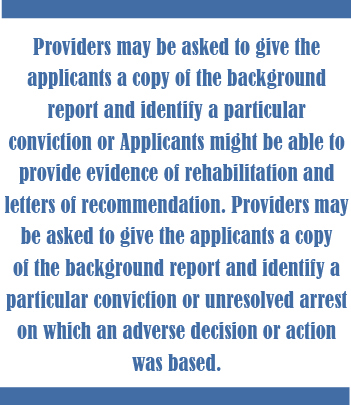By Elaine M Simpson
Is your city, county or state considering a “Fair Chance Housing” Law? We have all heard about Fair Housing, but how about Fair Chance Housing?
Human rights commissions around the country have been promoting the passage of “ban the box” or “fair chance” laws to eliminate the criminal-record questions from job and housing applications and to postpone background checks until later in the application process for applicants to be considered on their merits first. Proponents feel the best way to ensure that an individual is successful after he or she leaves the unfortunate situation of being incarcerated is to ensure that they find housing and to ensure that they find a job.
New laws and ordinances, such as “just housing,” have already passed in several areas. The issues and the laws surrounding them are complex. As one might expect, Seattle and San Francisco were among the first. Still, Detroit recently adopted a housing ordinance to assist those with a criminal past to obtain housing and “facilitate their reentry into society.”

The ordinance bars most city landlords from considering conviction history until independently determining whether the applicant is otherwise qualified apart from conviction history. The ordinance specifies the kinds of convictions that may disqualify such an applicant from renting and what type of evidence they may provide for consideration. For example, you may not consider arrests that did not result in a conviction; juvenile records; perhaps a conviction more than seven years old; an infraction, etc. Applicants might be able to provide evidence of rehabilitation and letters of recommendation. Providers may be asked to give the applicants a copy of the background report and identify a particular conviction or unresolved arrest on which an adverse decision or action was based.
For now, these new rules apply to affordable housing providers, not private housing providers; however, ALL housing providers should be cautious in using criminal records in making rental decisions. Back in April 2016, HUD’s Office of General Counsel issued guidelines on the use of criminal records for real estate-related transactions. Recent federal court decisions have followed the OGC’s guidance in determining liability under the Fair Housing Act for disparate impact discrimination.
If you are conducting property management of affordable housing in one of these jurisdictions, your resident selection process and marketing and advertising will be affected. For example, it will become illegal to state “no felons” or “no criminal history allowed” in your advertising. A housing provider will have to wait until after determining the applicant is legally eligible to rent the housing unit and is qualified under the provider’s criteria for assessing rental history and credit history. Historically, most of us were taught that “you can’t pick and choose your felons,” but now we might have to based on crimes to person or property, to preserve our duty to protect the other residents within our communities.
The following links are provided for further examples of legislation to help prevent unfair bias in housing against renters with a past criminal record:
https://www.chicagotribune.com/news/local/politics/ct-met-housing-ordinance-arrest-record-20190425-story.html
https://sf-hrc.org/fair-chance-ordinance
https://www.seattle.gov/civilrights/civil-rights/fair-housing/fair-chance-housing
www.ci.richmond.ca.us/3698/City-of-Richmond-Fair-Chance-Housing-Ord
Proper training can prevent most, if not all, fair housing violations. Occupancy Solutions offers in-person fair housing training, online webinars and e-learning courses. Please call 1-800-865-0948 today for your free consultation or visit our website at www.occupancysolutions.com.

Elaine M Simpson
This story appears in Issue 4 2020 of the Apartment Focus Magazine.








